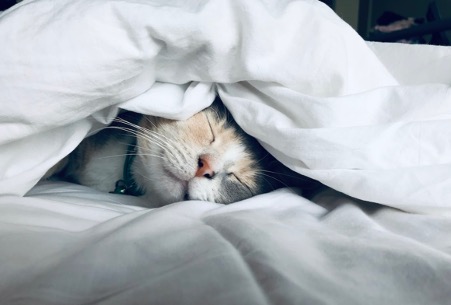Sleep is one of the most important elements of good physical and mental health and yet, for many people, a restful night’s sleep remains elusive. Without adequate rest and recovery time our mind, body, and soul suffer consequences such as decreased concentration levels, low energy, and motivation as well as an overall decrease in performance. Fortunately though, gaining a better understanding of the science behind sleep can help us to discover effective strategies to improve our quality -and quantity of sleep. In this blog post, we will delve into the science behind quality slumber in order to uncover tangible methods that you can use today to get more (and better) shut-eye tonight.
Choose The Right Mattress And Pillow
Choosing the right mattress and pillow can be a daunting task, as knowing which one is right for you depends on individual needs. However, doing research and taking into account factors like body weight, preferred level of firmness, and sleeping position can help ensure that you pick the best products to properly support your body while sleeping. It’s important to remember that with the right support, sleep can offer the restorative relaxation needed for better concentration during the day. So whether you prefer a traditional queen bed mattress or a memory foam pillow, be sure to choose one that fits your body and sleeping style. If your mattress is over 10 years old, it may be time to invest in a new one.
Understand Your Body’s Natural Sleep Cycles
Our bodies have natural rhythms, or natural sleep cycles, that dictate when and how much we should be sleeping. It is important to understand these rhythms so that you can create healthy daily habits that will help keep them in balance. The body’s clock, or circadian rhythm, signals our body when we should be awake and when it is time to go to sleep. If you disrupt your routine too often by staying up late or sleeping at unusual times, your body’s natural sleep cycle may become unbalanced, resulting in feelings of fatigue or insomnia. Developing a regular sleep-wake cycle is an essential part of good health and optimal performance during the day. Once established and maintained it can encourage good levels of energy throughout the day and higher levels of productivity.
Develop A Nighttime Routine
Establishing a nighttime routine is essential to getting a good night’s sleep. Ideally, the routine should be calming and free of stress. Try making it enjoyable by ensuring you are setting aside time to do something that you enjoy. Taking part in relaxing activities like taking a hot bath or reading a book can help you slow down and relax before bedtime. Additionally, turning off electronics an hour before you lay your head down helps reduce your body’s cortisol levels and calms the mind for an easier transition into sleep. Having a nightly ritual is both calming and beneficial, so try creating your own custom routine today!
Foster Healthy Sleep Hygiene Habits
Developing healthy sleep hygiene habits is essential for a good night’s rest. One important habit to foster is avoiding caffeine close to bedtime – this includes coffee, tea, and even some soft drinks. Caffeine is a stimulant that can keep us awake and alert long after we should be in dreamland. It can also affect how quickly we fall asleep; it may take longer than usual if the body has high levels of caffeine still racing through its veins. To ensure better quality sleep, try to cut off all caffeine intake six hours before bedtime or earlier. You may even find you fall asleep faster and easier!
Exercise During The Day
Starting or ending the day with some type of physical activity is the key to feeling energized both during the day and at night. Exercising, on a regular basis, increases oxygen levels in the bloodstream which boosts our overall energy levels as well as improves alertness. Additionally, stressing out your muscles during workouts results in an increase of endorphins that can make us more attentive and productive throughout the day. On top of that, increased metabolism caused by exercise helps you fall asleep quicker and sleep better at night thus providing you with extra energy to get through your day full of activities!

In conclusion, obtaining quality sleep doesn’t just happen; it requires work and some healthy lifestyle changes. Make sure you understand the science of sleep to know your natural circadian rhythms. Then create a soothing sleep environment and get into the same nightly routine that doesn’t just involve going straight from the sofa to bed. It’s also important to pick out bedding items such as comfortable pillows, mattresses, and temperature-regulating sheets that can help your body rest comfortably each night for many years. Lastly, be sure to avoid stimulants around bedtime and practice a little bit of exercise throughout the day to naturally boost your energy so you aren’t tempted to stay up too late at night. Quality sleep is integral for good health; following these simple steps can help you snooze more soundly every evening!

